There are things we inherit from our family that are easy to identify. Eye color, recipes, family traditions, and a sort of blind reverence for specific sports teams (go Yankees!!). But then there are the unknown, unseen “ghosts” that we inherit that echo inside of us.
The grief, the silence, the secrets. The things that weren’t talked about. They get passed down epigenetically and can show up in our relationships, our parenting, our choices, and our creativity as unconscious mirrors into the past.
This is what my brilliant guest on my new podcast episode, Dr. Galit Atlas, calls emotional inheritance. It’s the unconscious transmission of trauma, desire, and unspoken narratives across generations—and the idea that everything we don’t consciously know has the power to shape our lives. Spooky, yes, but so freaking cool!
I recorded the intro to this episode during the once-in-a-lifetime vacation I’m currently on with my family in Hawaii. I’m here with my kids, my husband, my aunts, my cousins, their children, our spouses… the whole beautiful mix. It’s a multigenerational gathering that feels very much like a living library of stories, memories, and patterns. And our time together has made me think so much about what we’ve all inherited emotionally—and how empowering it is to share and dig into all of that together. Which is something I never would have been aware of had I not discovered the work of my guest today and her extraordinary book Emotional Inheritance.
When I read Dr Atlas’ book several years ago, I was completely blown away. I gifted it to friends, marked up almost every page, and read every last word. Even studying the acknowledgments, where I spotted the name of my former therapist in NYC, the woman who gave me the courage to make the leap and come to Paris 26 years ago: Yael Kapeliuk! When I found out that she and Galit were close friends and peers, I felt like we were connected in some strange way. And honestly, I wasn’t that surprised they knew each other because there was something very familiar to me in Galit’s voice. She and Yael share the same capacity to hold complexity with love and care. And also, at times, reveal bits of their own stories to amplify the work being done together.
Which is what I absolutely love about Galit’s therapeutic approach and writing. There’s a kind of creative alchemy in how she meets each person exactly where they are, and allows their stories to shape hers in return. That sensitivity and flexibility resonates with me, not just as a reader, but also as a coach. Because I too can’t help be shaped and find connection between my client’s stories and my own.
About Dr Galit Atlas:
Dr. Galit Atlas is a clinical psychologist, psychoanalyst, and faculty member at NYU’s Postdoctoral Program in Psychotherapy and Psychoanalysis. Her work has appeared in The New York Times and academic journals around the world. Emotional Inheritance has been translated into 27 languages and has become an international bestseller for good reason—it helps people name what they’ve never had language for.
I’ve been wanting to interview Galit for years, but I turned to her this season to help me understand how creativity and deep emotional excavation might be connected—especially at midlife. How does doing this kind of work—unpacking the ghosts we’ve inherited—actually make space for more life, more color, and more choice?
Her answers totally blew my mind. She drew a line I’d never noticed between these two seemingly separate things (creativity and emotional healing) and showed how deeply intertwined they really are.
We also talk about:
Why what you don’t know about your family may be shaping your life more than what you do
What makes a secret a secret—and why that distinction matters
How therapy mirrors creativity, and why midlife is the perfect portal for this kind of inner work
Why emotional inheritance is less about what happened to you, and more about what’s living through you
And what it means to stop merely surviving—and begin becoming
We also dive into her extraordinary workbook, a companion to Emotional Inheritance. It’s part reflection journal, part emotional map, part excavation guide. And it reminds us that sometimes the most radical thing we can do is look inward—not to stay stuck in the past, but to move forward with more self-trust and fewer unconscious contracts.
And—yes—she’s working on a new book, coming in 2027, which explores childhood wounds and adult love. (The picture below is a snapshot of Galit on her emotional support giant teddy bear where she finds herself whenever she starts a new book!).
This conversation is about ancestral ghosts, yes. But it’s also about the courage to excavate our own stories, to go looking into unfamiliar spaces to find connections between who we are and where we come from. All as part of the adventurously creative act of becoming more ourselves.
Have a wonderful listen. I cannot wait to hear your feedback.
xxx
Zeva
PS. As always, you can listen to the episode on the above browser or on anyone of your preferred podcast players, like Apple, Deezer or Spotify.
PPS. Please like, share and comment on this post to help spread the word.

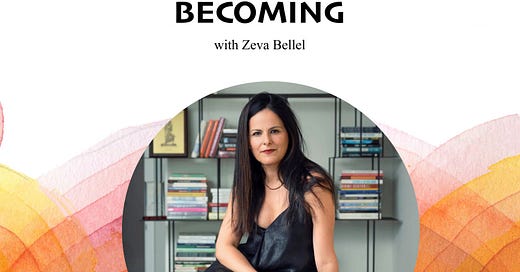



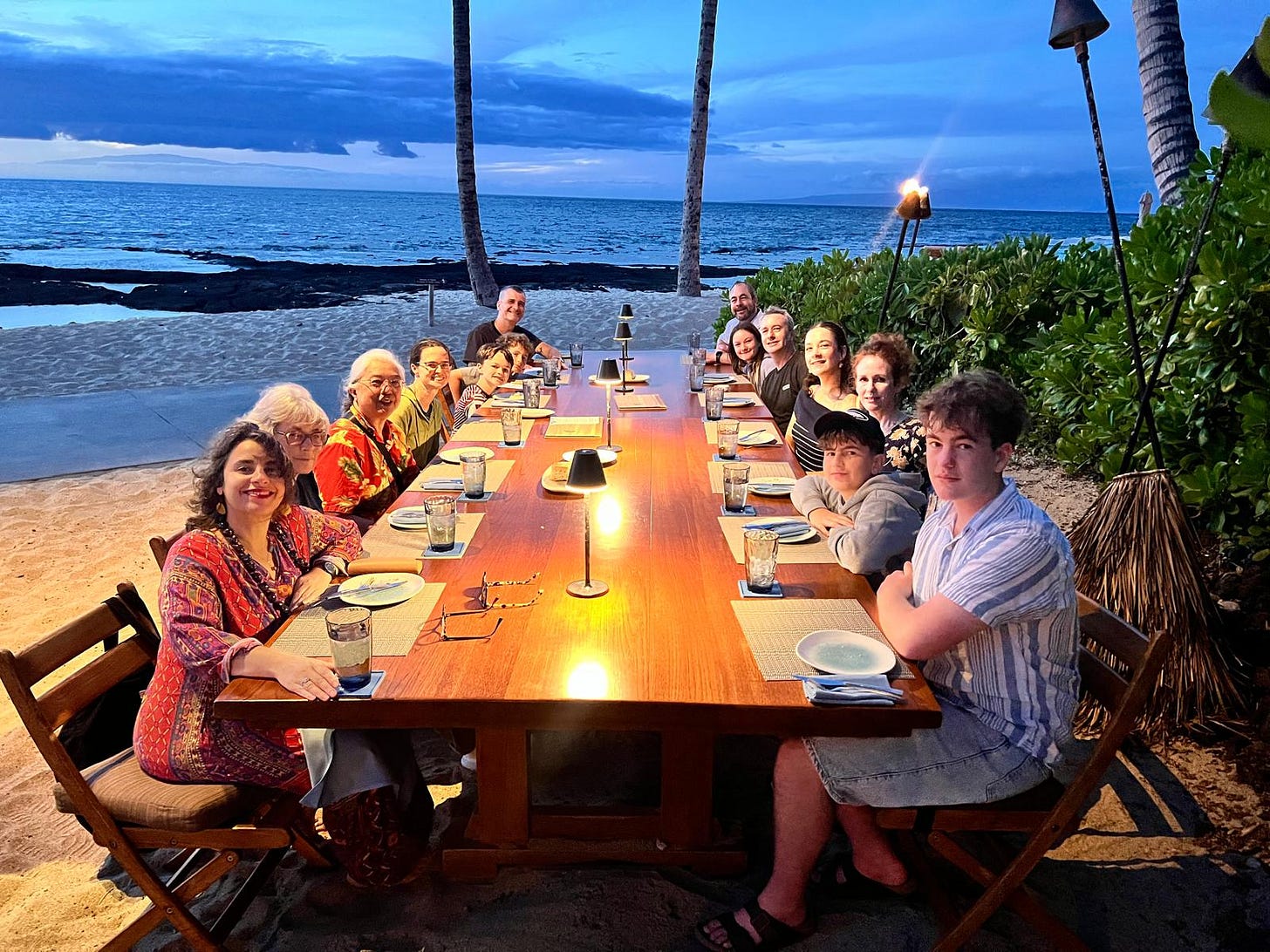






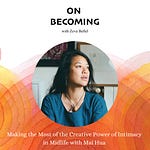

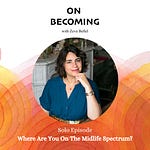
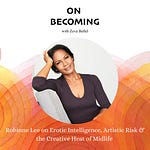

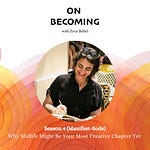
Share this post